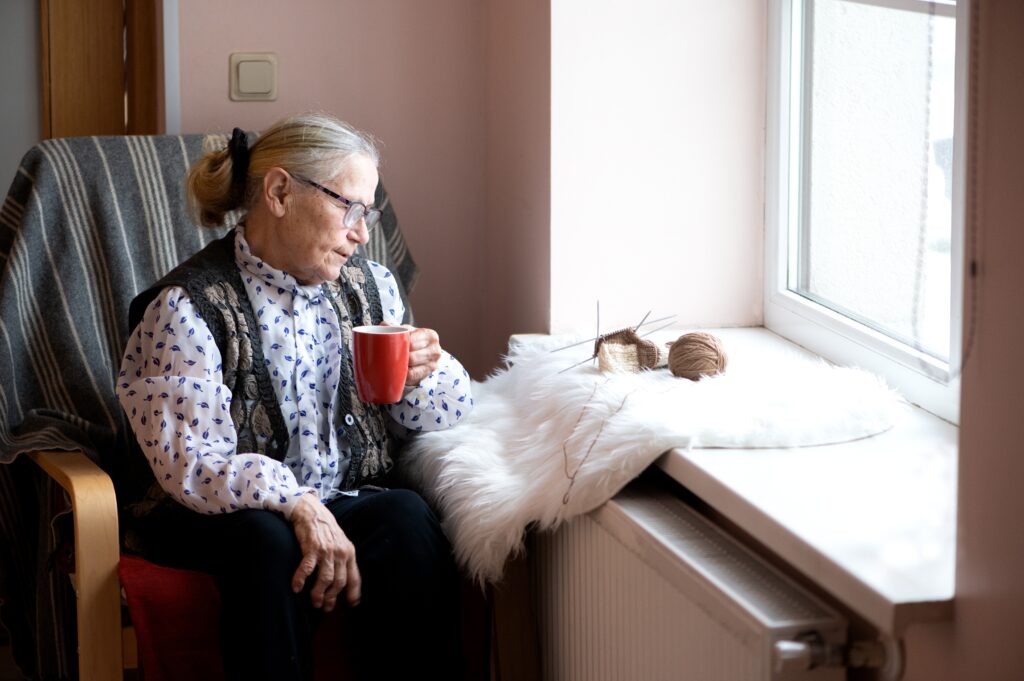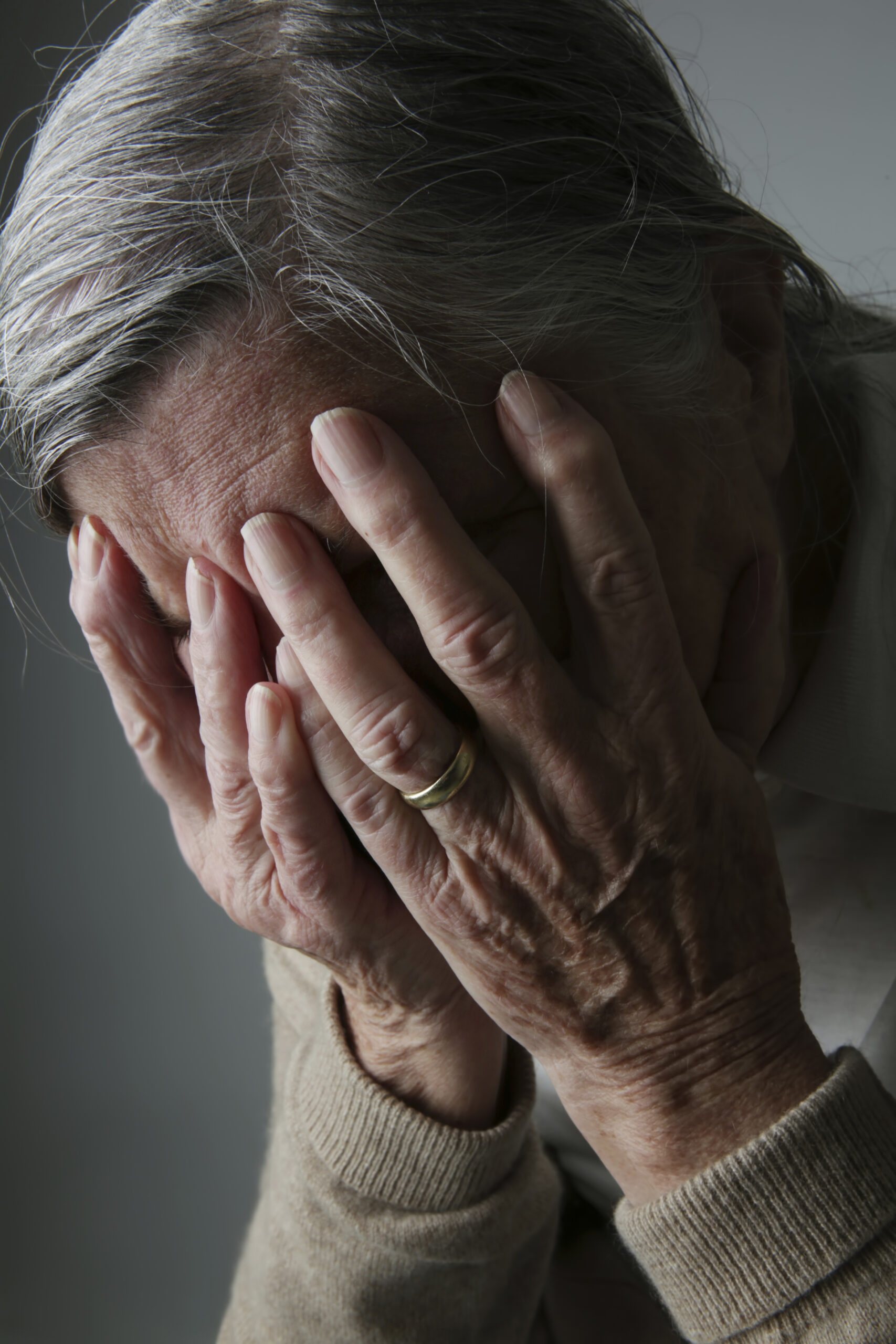Seasonal Affective Disorder (SAD), commonly known as seasonal depression, can affect individuals of all ages, but it can be particularly challenging for the elderly. With the winter months casting long, dark shadows and reduced exposure to sunlight, seniors are at an increased risk of experiencing the symptoms of Seasonal depression.
As family members, it’s essential to recognise the signs, offer support, and work with caregivers to help your loved ones manage this condition.
In this article, we’ll explore what to look out for in seasonal depression, actions to take, and the role caregivers can play in improving the quality of life for seniors dealing with SAD.
Identifying Seasonal Depression in the Elderly

Here are some signs to look out for in your elderly loved ones, which may indicate seasonal depression:
Changes in Mood and Behavior: One of the most prominent signs of seasonal depression in the elderly is a noticeable change in mood and behavior. Your loved one may become irritable, withdrawn, or exhibit a loss of interest in activities they once enjoyed. Pay attention to any unusual shifts in their behavior.
Sleep Disturbances: Seniors with SAD may experience disrupted sleep patterns. This could manifest as difficulty falling asleep, waking up frequently during the night, or sleeping excessively during the day.
Weight Fluctuations: Some elderly individuals with SAD may undergo changes in their appetite and eating habits, resulting in weight gain or loss. Keep an eye out for any significant fluctuations in weight.
Fatigue and Lack of Energy: Seasonal depression can lead to a profound lack of energy and motivation. If your loved one seems constantly fatigued and uninterested in participating in daily activities, this may be a symptom of SAD.
Cognitive Impairment: SAD can also affect cognitive functions in the elderly. They may experience difficulties with concentration, memory, and decision-making, which can impact their overall quality of life.
Supporting those affected by Seasonal Depression

Supporting the elderly through seasonal depression is so important, here are a few ways you can help your loved one
Open and Honest Communication: The first step in supporting a loved one with seasonal depression is to foster open and honest communication. Encourage them to talk about their feelings and emotions, and actively listen without judgment.
Seek Professional Help: If you suspect that your elderly family member is suffering from SAD, consult with a healthcare professional. A doctor can provide a proper diagnosis and recommend suitable treatment options.
Encourage Regular Exercise: Physical activity has been shown to alleviate the symptoms of SAD. Encourage your loved one to engage in light exercise, such as walking or yoga, to help boost their mood and combat the effects of the disorder.
Promote a Healthy Diet: A balanced diet is essential for managing SAD. Ensure your elderly family member is getting proper nutrition by offering healthy, well-rounded meals that include plenty of fruits and vegetables.
Light Therapy: Light therapy, also known as phototherapy, can be an effective treatment for SAD. Encourage your loved one to use a light therapy lamp for a designated period each day to mimic the effects of natural sunlight.
Plan Social Activities: Isolation can worsen the symptoms of seasonal depression. Arrange for social interactions and engage in activities with your loved one to keep them connected and engaged.
Working with Caregivers to Manage Season Depression
When you have caregivers assisting in the home, fostering a collaborative and supportive environment is key to ensuring the well-being of your elderly loved one, it is important to discuss seasonal depression in the same way as other medical conditions with homecare assistants, here are a few things to remember:
Provide Information: Share your knowledge of your loved one’s condition with their caregivers. Ensure they are aware of the specific symptoms and needs associated with SAD.
Collaborate on a Care Plan: Work together with the caregivers to create a comprehensive care plan that addresses your loved one’s emotional, physical, and social needs. This plan should include scheduled activities and treatments to mitigate the effects of SAD.
Regular Check-Ins: Maintain consistent communication with caregivers to stay updated on your loved one’s progress. Ask for feedback on their observations and any concerns they may have.
Promote a Positive Environment: Encourage caregivers to create a nurturing and positive environment for your elderly family member. A cheerful and well-lit space can make a significant difference in managing SAD.
Support Caregiver Well-Being: Caring for someone with SAD can be emotionally taxing for caregivers. Ensure they have access to support and resources to help them cope with the challenges they face.
How Care in Kent can help your loved one
If you’re looking for additional support in caring for your elderly family member, consider exploring homecare.
To learn more about how homecare services in Kent can assist your family, please don’t hesitate to reach out to Care in Kent. They are dedicated to delivering high-quality care tailored to the needs of your loved ones, helping them find comfort and relief from seasonal depression.
Remember, by taking these proactive steps and working together with caregivers, you can make a significant difference in the lives of your elderly family members struggling with seasonal depression.


